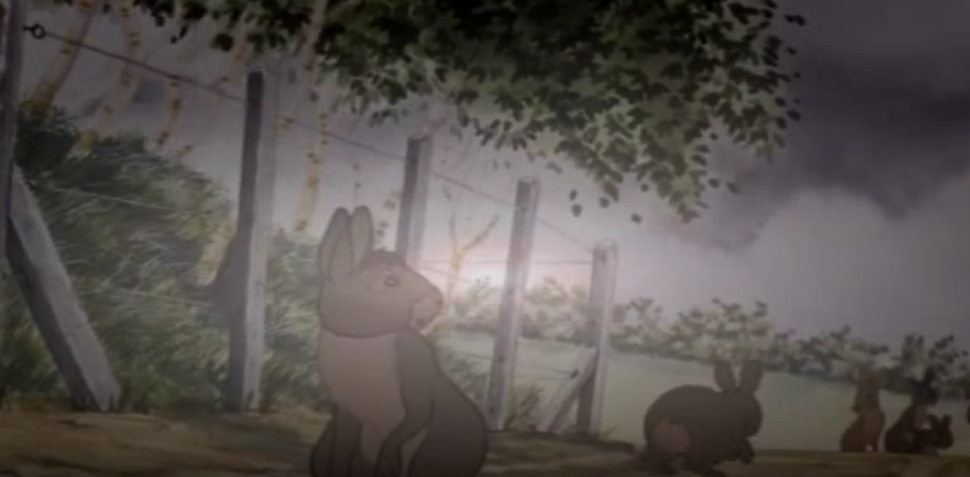Richard Adams Wrote Against Intolerance — For Jews, and Everyone Else

Image by YouTube
After one of their number predicts the destruction of their home, a group of brave individuals sets out in search of a new safehaven. On their way, they escape dystopian societies — one reminiscent of Ursula Le Guin’s “The Ones Who Walk Away From Omelas,” in which the life of the many depends on the sacrifice of a few, one a police state — and liberate oppressed women, allowing their fledgling community to grow and prosper
Sound familiar?
To many, the story did, yet Richard Adams, the author of “Watership Down” insisted it was, truly, just a story about some rabbits.
Adams, who passed away on Christmas Eve at 96 years old, wrote “Watership Down” under pressure from his two daughters. The duo wished he’d write down the stories he told them on car trips, thrilling tales about a group of rabbits’ adventures after fleeing their soon-to-be-destroyed warren.
The result was a book, published in 1972, that struck many as allegorical for the great quests of displaced social groups, as well as those of the heroes of classical mythology.
In 2011, Forward contributor Rachel Kadish wrote, in Moment Magazine, of her desire to see the novel “through Jewish-colored glasses.”
“As a writer, I know better than to spend too much time speculating over whether Adams (or Tolkien or Rowling) had us Jews in mind,” she admitted. Nonetheless, certain moments in the book — a prophesy of the rabbits’ embattled but promising future, a covenant to protect that future — made her “want to pull out a copy of Genesis and start comparing lines.”
She was far from the only one, she noted:
Turns out some people see it as an allegory for struggles against the Cold War, fascism, extremism. Or a protest against materialism, against the corporate state. “Watership Down” can be Ireland after the famine, Rwanda after the massacres. A quick online search for “Watership Down, allegory” definitively proves that the book is actually an adaptation of Homer and Virgil, or of the life of Jesus, or of Native American religion.
Perhaps it was the book’s familiar exodus story that invited so many interpretations; perhaps it was Adams’ knack for inhabiting the consciousness of the overlooked, often by writing books centered on anthropomorphized animals. “Watership Down” was his first novel; later ones included “Shardik,” the title character of which is a bear thought, by a cult, to be divine, and “Traveller,” a historical novel about the Civil War narrated by General Robert E. Lee’s favorite horse.
Adams was humble about that talent, expressing confusion at it.
“You have to realize that a novel is not like planting a garden,” he told the House Rabbit Society’s Jamie Cohen in 1998. “A garden is deliberate, like deciding what gets planted where. With writing, you find yourself possessed by things you don’t always know why that is. I guess that’s what they call inspiration.”
A message from our CEO & publisher Rachel Fishman Feddersen

I hope you appreciated this article. Before you go, I’d like to ask you to please support the Forward’s award-winning, nonprofit journalism during this critical time.
We’ve set a goal to raise $260,000 by December 31. That’s an ambitious goal, but one that will give us the resources we need to invest in the high quality news, opinion, analysis and cultural coverage that isn’t available anywhere else.
If you feel inspired to make an impact, now is the time to give something back. Join us as a member at your most generous level.
— Rachel Fishman Feddersen, Publisher and CEO























